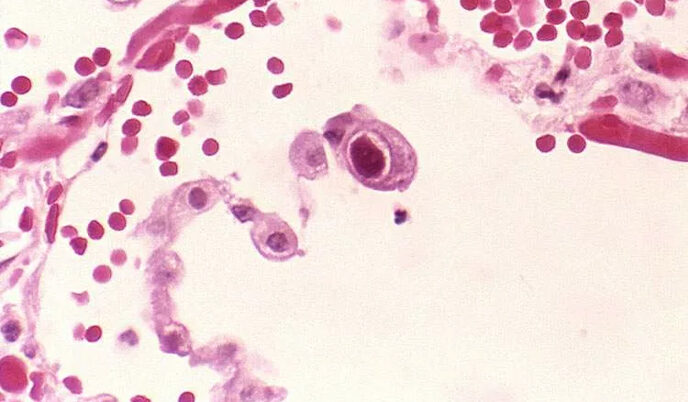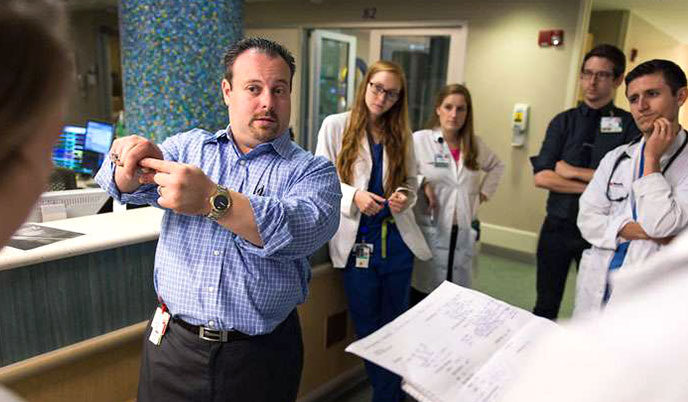
Mental health in pregnancy may affect development of newborns’ brains
Many factors can influence the development of a baby during pregnancy and after birth, but until recently, researchers knew little about the relationship between an expectant mother’s mental health and the subsequent development of her baby after birth.

Wisconsin researchers receive $60 million from NIH for All of Us research program
Four Wisconsin medical and scientific organizations – Marshfield Clinic Research Institute, University of Wisconsin School of Medicine and Public Health, Froedtert & the Medical College of Wisconsin and BloodCenter of Wisconsin, part of Versiti – were awarded $60 million by the National Institutes of Health (NIH) to continue to implement the All of Us Research Program in Wisconsin through 2023, a momentous effort to advance individualized prevention, treatment and care for people of all backgrounds.

Review of multiple studies shows early hormone use not associated with cognitive problems in healthy women
Hormone therapy is not associated with cognitive harm for women if therapy begins around the age of menopause in healthy women, according to University of Wisconsin-Madison research presented this week at the 2018 Alzheimer’s Association International Conference (AAIC) in Chicago.

Cell therapy is the future, and Wisconsin is the place, says Jacques Galipeau
Medicine is rapidly approaching a great advance that will augment or replace drugs with human cells for treating a range of intractable conditions, an expert in cell therapy told the Wisconsin Technology Council on June 26.

Exercise and meditation appear to reduce common colds and flu
Training in mindfulness meditation or exercise may protect against the common cold and influenza, according to research results from the University of Wisconsin School of Medicine and Public Health.

Report: Promising cell type represents new frontier for treating disease
A type of cell drawn from certain body tissues shows enormous potential to treat a range of diseases in the United States and Europe, but it must first receive federal approval as a regulated pharmaceutical.

Short-term high-dose inhaled steroids do not prevent asthma flare-ups in children
Temporarily increasing the dosage of inhaled steroids when asthma symptoms start to worsen does not effectively prevent severe flare-ups, according to a new University of Wisconsin–Madison study. And the common medical practice for children with mild to moderate asthma may be associated with slowing a child’s growth.

UW Carbone study: Caregiver spouses of cancer patients suffer untreated depression
A new study from the University of Wisconsin Carbone Cancer Center highlights a troubling disparity in cancer care: the depressed spouses of cancer patients are 33 percent less likely to receive adequate treatment for depression than are patients whose spouses don’t have cancer. In rural areas, it’s even worse: Couples who live in rural areas are 72 percent less likely to receive recommended care for depression (including medication and talk therapy) than the depressed spouses of those without cancer.

Healthy Communities’ designation to celebrate and encourage local health improvement efforts
Communities around the state can now be recognized for their work to become healthier through a new program from the UW School of Medicine and Public Health.

Q&A: Paul Harari on radiation oncology
Dr. Paul Harari begins his term as president of the American Society for Radiation Oncology (ASTRO) at the group’s annual meeting in San Diego Sept. 24-28.

Study: Medicaid expansion helped reduce reliance on federal income assistance
States that expanded Medicaid under the Affordable Care Act saw a reduction in reliance on a federal income assistance program for low-income adults with disabilities, according to a study from the UW School of Medicine and Public Health.

Josh Medow: Critical care for the brain
At Joshua Medow’s first job, in the Neurocritical Intensive Care Unit at University Hospital, he saves lives. His patients have endured strokes, car accidents and shootings.